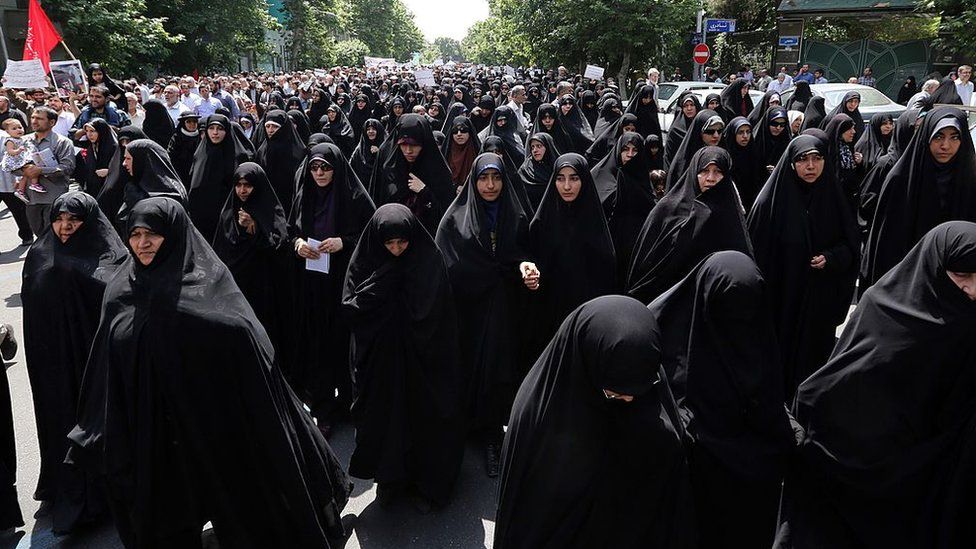Iran’s legislative body has forwarded a proposed hijab law to the influential Guardians Council for final review.
Should this become law, women not adhering to the Islamic dress code could face penalties up to five years in prison, according to official reports.
The “Bill Supporting Chastity and Hijab Culture” recently gained approval in a private judicial and cultural commission.
The draft is now with the Guardians Council, shared Hassan Norouzi, the Deputy Chair of the Iranian Parliament’s Judicial and Legal Committee.
The Guardians Council, a 12-member group consisting of legal experts and clerics, reviews and can veto parliamentary decisions.
They have ten days to evaluate the proposal, which addresses the decline in hijab use—a symbol of civil disobedience for many Iranian women, especially after Mahsa Amini died in 2022.

She was arrested for not properly wearing her hijab, and her subsequent death ignited widespread protests.
These protests, chanting for women’s rights and freedom, escalated over months, leading to a significant clampdown resulting in hundreds of deaths and multiple arrests.
Some protestors even faced public execution.
The draft legislation includes 70 clauses detailing various penalties, such as fines, prison sentences, confiscation of vehicles, driving bans, salary reductions, job benefits cut, and restrictions on banking services.
Last week, the Parliament opted for a 10-member committee review instead of a full session, sidestepping a broader public debate with all 290 members, especially considering the upcoming March parliamentary elections.
Norouzi clarified that women need not wear a chador—a garment that covers everything but the face.
They can choose their head covering method. Following Amini’s death in Tehran and subsequent nationwide protests, many women opted against the mandatory veil, viewing it as a symbol of their broader societal discrimination.
In response, Iranian authorities have sought to enforce the dress code through various means, including reintroducing the morality police and assigning unconventional punishments like cleaning public buildings.

